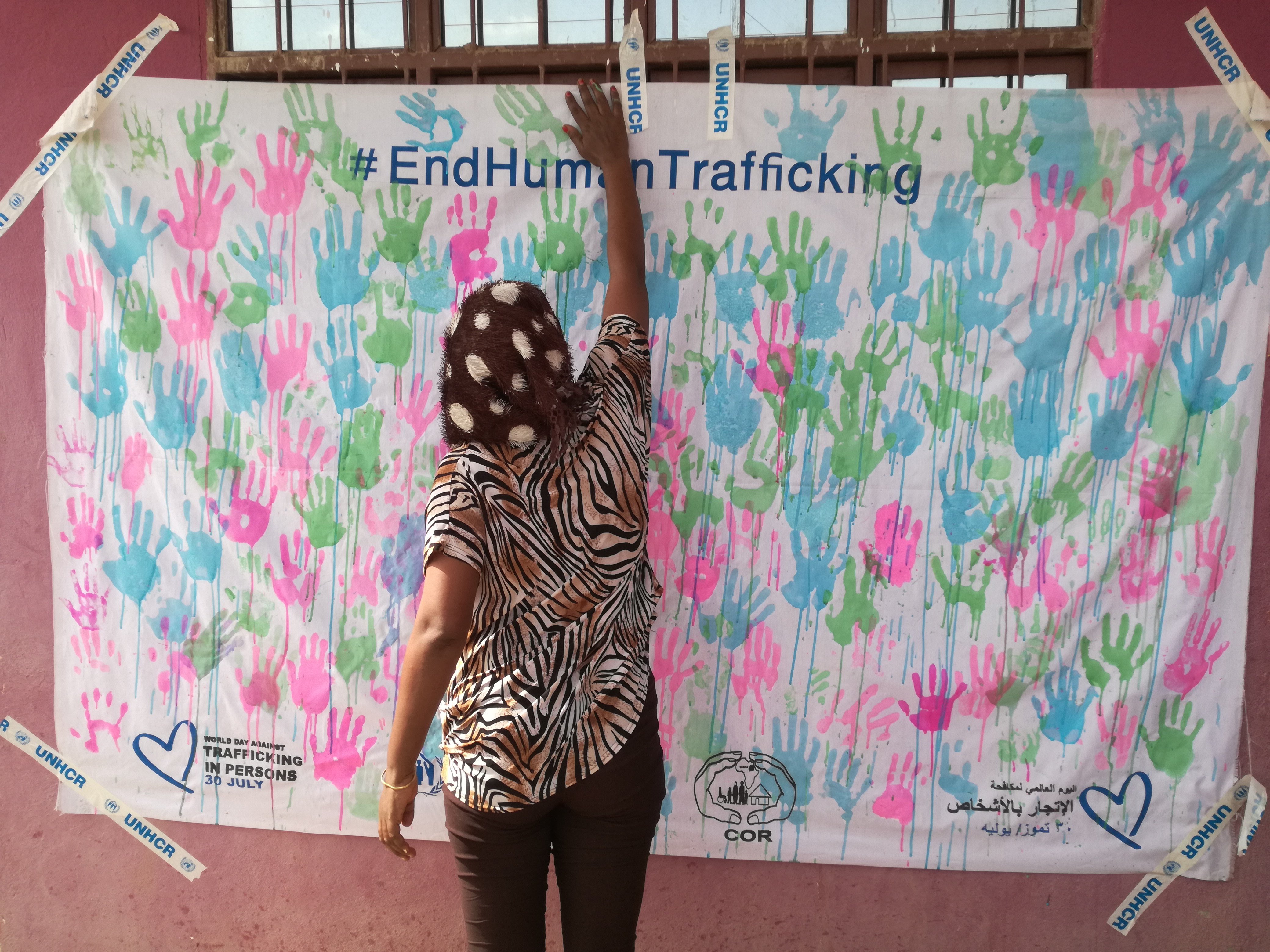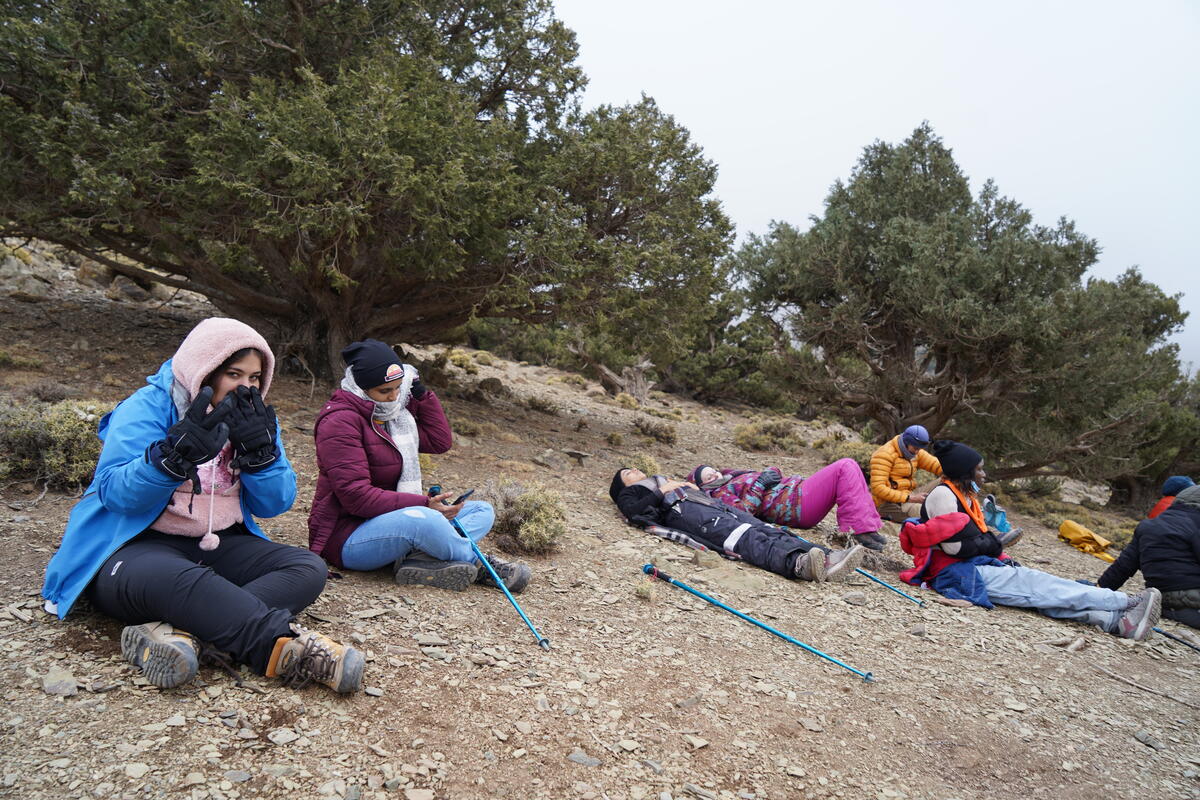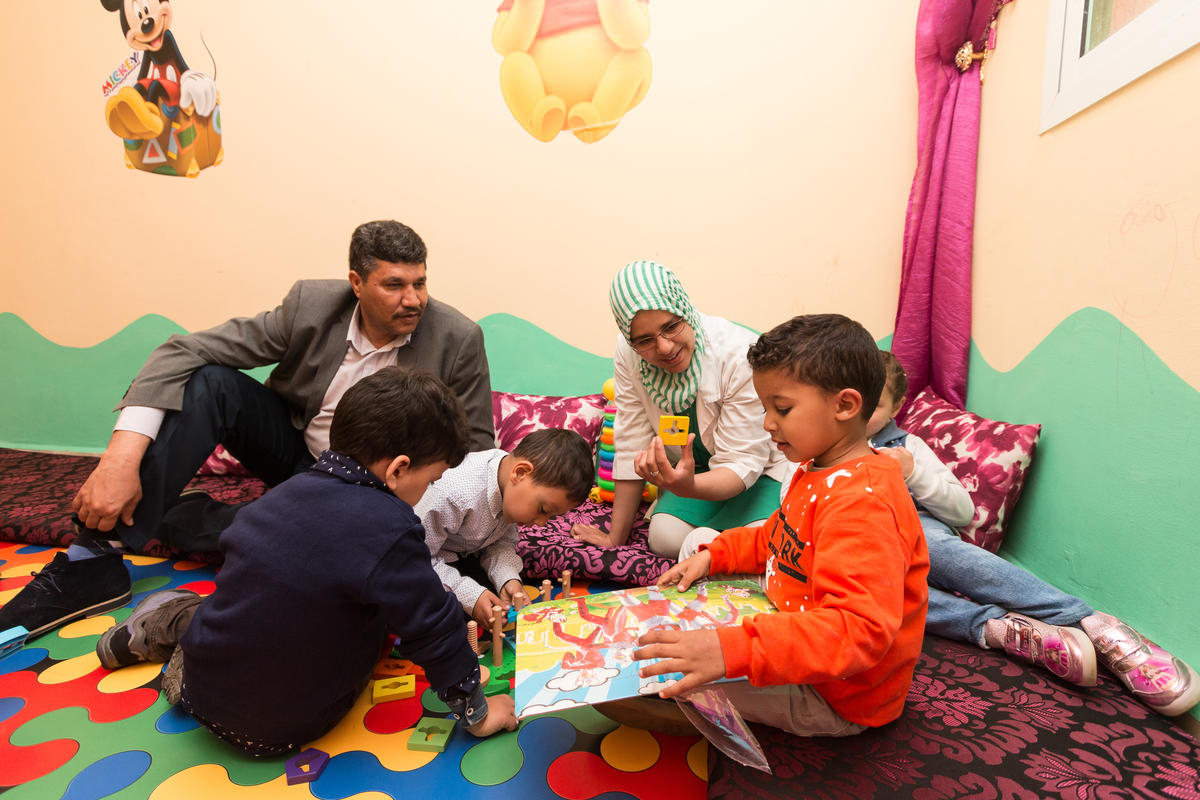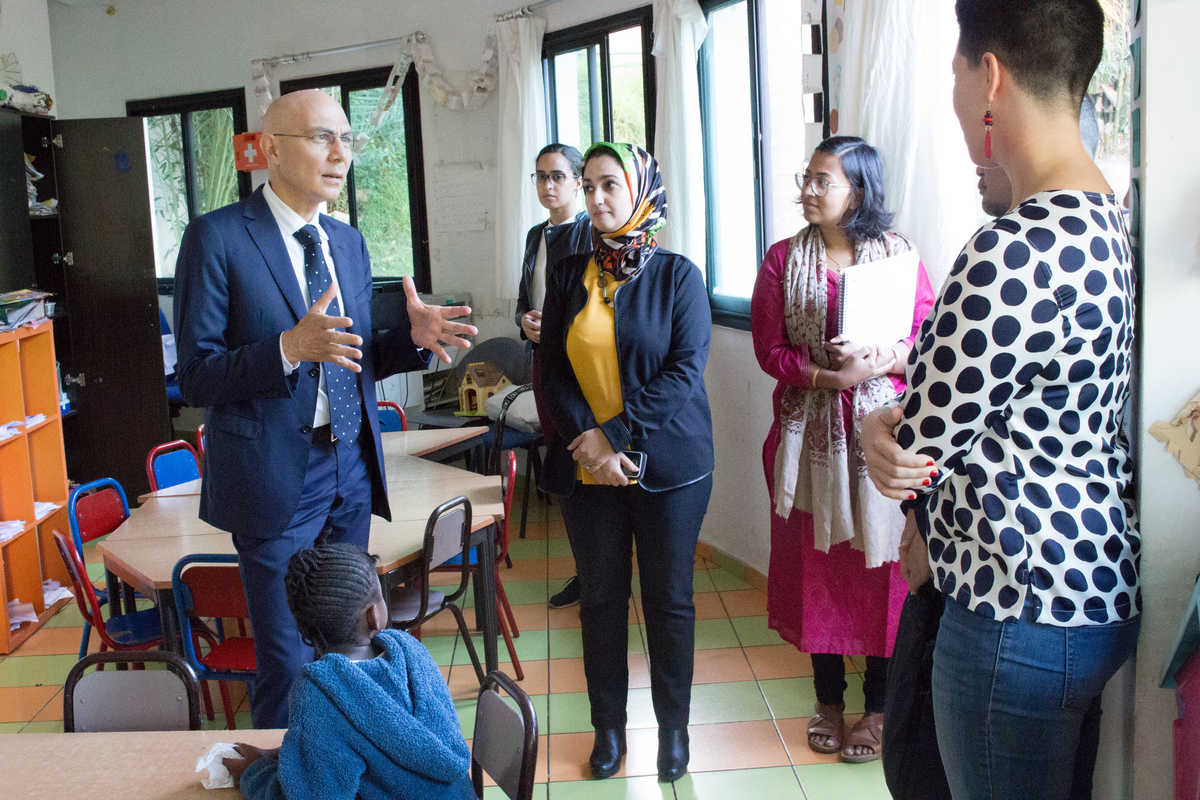Morocco: UNHCR re-opens office after end of sit-in
Morocco: UNHCR re-opens office after end of sit-in
Our office in Rabat has reopened after a demonstration by some 20 refugees in front of UNHCR's office was dispersed in a peaceful manner by Moroccan law enforcement officials late Thursday night. The UN system in Morocco asked for the peaceful intervention after various negotiations with the demonstrators to end their sit-in failed. The demonstration - preceded by a violent incident at our office - had led UNHCR to temporarily close its office, bringing to a halt all UNHCR's protection and assistance activities for refugees in Morocco.
Refugees from the Democratic Republic of the Congo violently entered UNHCR's office in Rabat on Friday 18 May, injuring two security guards. They then staged a sit-in in front of our office, claiming a right to regular monthly financial assistance from us for all refugees in Morocco, saying their insecure status as refugees did not allow them to live in dignified conditions. The refugees were joined from time to time by another 30 refugees during the sit-in.
Over the last week, UNHCR's staff in Morocco have consistently made clear to the refugees that we are ready to maintain and further develop the dialogue with the refugee community about their various concerns and complaints (also brought forward by the group) and help find better solutions to their plight - as soon as the situation in front of the office returned to normal. We also highlighted that the use of violence is unacceptable and that refugees - like other citizens - have to respect national law and order. Last Wednesday, during a three-hour meeting with representatives of the group, UNHCR made a number of proposals in an effort to unblock the situation and address their complaints. The demonstrators categorically refused any cooperation and left the meeting stating they would not end their sit-in.
Refugees in Morocco are living in precarious conditions as they are not formally recognized by the authorities and have no temporary residence permit. As a result, they have no formal access to the labour market or to basic services.
UNHCR Rabat, however, in dialogue with the authorities and acting jointly with an increasing number of local partner organizations, is helping refugees to get a better secured legal status and improve their socio-economic well-being, with the emphasis on self-reliance. A number of refugees are benefiting from vocational skills training, micro-projects and other income-generating activities. Refugee children can now be enrolled in public schools and access to medical care for refugees is ensured through organizations in the public health sector.
UNHCR Rabat has regularly informed refugees that it has no budgetary means to provide individual financial assistance in an open-ended manner.
UNHCR Rabat has registered some 600 refugees and 1,000 asylum seekers, mainly from the Democratic Republic of the Congo, Côte d'Ivoire, Iraq, Sierra Leone and Liberia.








